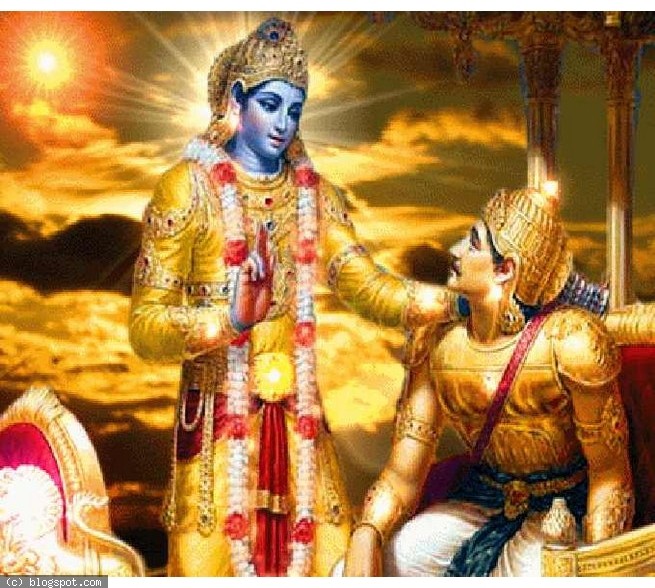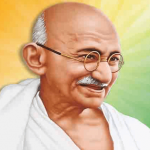Mokshada Ekadashi also celebrated as ‘Gita Jayanti’ falls on the eleventh day of Shukla Paksha in the month of ‘Margashira.’ As the name reveals, Mokshada Ekadashi helps to achieve salvation or ‘Moksha’ from the cycle of birth and death to reach the Vaikuntha, the divine abode of Lord Vishnu. Mokshada Ekadashi is observed with devotion. It is also referred as ‘Maun Ekadashi,’ and hence devotees observe ‘Mauna Vrat’ all day long.
Must Read : Divine Mysteries : The Ever Mysterious Chidambara Rahasyam
Mokshada Ekadasi is a very special Ekadasi in two regards; the all auspicious day on which Lord Sri Krishna spoke the Srimad Bhagavad Gita to Arjuna on the battlefield of Kurukshetra, at the place now known as Jyotisha tirtha. Anyone who gifts a Bhagavad Gita away to a deserving person on this day is bestowed profuse blessings by the Sri Krishna Bhagavan.

This Ekadashi is observed with devotion and zeal all across India. Mokshada Rituals during Mokshada Ekadashi. In Hindu mythology, it is believed that by observing the Mokshada Ekadashi vrat, the observer can even grant moksha or liberation to their ‘Pitrs’ or dead ancestors.
This day is called as Gita Jayanti as on this day, Bhagavad Gita, the well-known Hindu scripture was narrated to Arjun by Lord Krishna, during the epic war of Kurukshetra. For this reason, Mokshada Ekadashi is held auspicious for Vaishnavas or Lord Vishnu followers.
The day of Mokshada Ekadashi is also favourable for gifting the Bhagavad Gita to any deserving person so that he/she receives the love and affection of Lord Vishnu. The significance of Mokshada Ekadashi is mentioned in various Hindu scriptures and by listening them on this day, the person receives as much merits as achieved from a religious horse sacrifice.
It is even revealed in the Vishnu Purana that Mokshada Ekadashi fasting is equivalent to the combined benefits of the other 23 ekadashi vrats in the Hindu year.
Rituals of Mokshada Ekadashi
On Mokshada Ekadashi day one must get up at sunrise and take an early bath.
Fasting is another important ritual of the day. The fast of Mokshada Ekadashi involves spending the day without eating or drinking anything. The fasting is done for a duration of 24 hours from the sunrise of Ekadashi tithi to sunrise of Dwadashi tithi.
It is a popular belief that one who religiously observes this vrat every year will attain salvation after death.
 Partial fasting by eating milk, dairy products, fruits and other vegetarian foods is also allowed for those who are unable to keep a strict fast. Even a pregnant woman can observe this kind of fasting. Consumption of rice, grains, pulses, onion and garlic is strictly prohibited even for those not observing the Mokshada Ekadashi vrat.
Partial fasting by eating milk, dairy products, fruits and other vegetarian foods is also allowed for those who are unable to keep a strict fast. Even a pregnant woman can observe this kind of fasting. Consumption of rice, grains, pulses, onion and garlic is strictly prohibited even for those not observing the Mokshada Ekadashi vrat.
Eating leaves of the Bel tree is obligatory for Lord Vishnu followers.
Must Read : Divine Mysteries : The Musical Pillars of Vittala Temple
Devotees worship Lord Vishnu with devotion to seek His divine blessings. On this day the Holy Bhagavad Geeta is also worshipped and sermons are read out in many temples.
The observer of this vrat offers prayers to Lord Krishna by following all the rituals of the puja. In the evening they visit the temples of Lord Vishnu to witness the celebrations there.
On the occasion of Mokshada Ekadashi it is considered auspicious to read ‘Bhagavad Gita’, ‘Vishnu Sahasranamam’ and ‘Mukundashtakam’.
Legend of Mokshada Ekadashi
Mokshada Ekadashi is regarded as an auspicious day to worship Lord Vishnu because, on this day Lord Krishna, an avatar of Lord Vishnu narrated the Holy Bhagavad Gita to Arjuna on the battlefield of Kurukshetra.
During the battle of Mahabharat, Arjun was struck by despair and grief upon seeing his kith and kin dying. He was reluctant to wage war against his cousins.
Lord Krishna narrated the 700 verse of religious discourse which is known as the Bhagavad Gita to Arjuna. It was Margasheersha Shukla Ekadashi or Mokshada Ekadashi.
Another legend about the Mokshada Ekadashi appears in the Brahmanda Purana. Lord Krishna narrates the story to the Yudhishthira about a benevolent king in the city of Champaka Nagar who treated his subjects like his family.
One night the king had a terrible dream about his father suffering in hell. Next day he narrated his nightmare to a scholar who advised him to approach Paravat Muni.
He told the king that his father was being tormented for his sin in hell. He instructed him to observe a fast on Mokshada Ekadashi to absolve his father of his sins. The King did likewise along with his wife and children, and his father was redeemed from the sins.
=====
@religionworldin
[video_ads]
[video_ads2]









